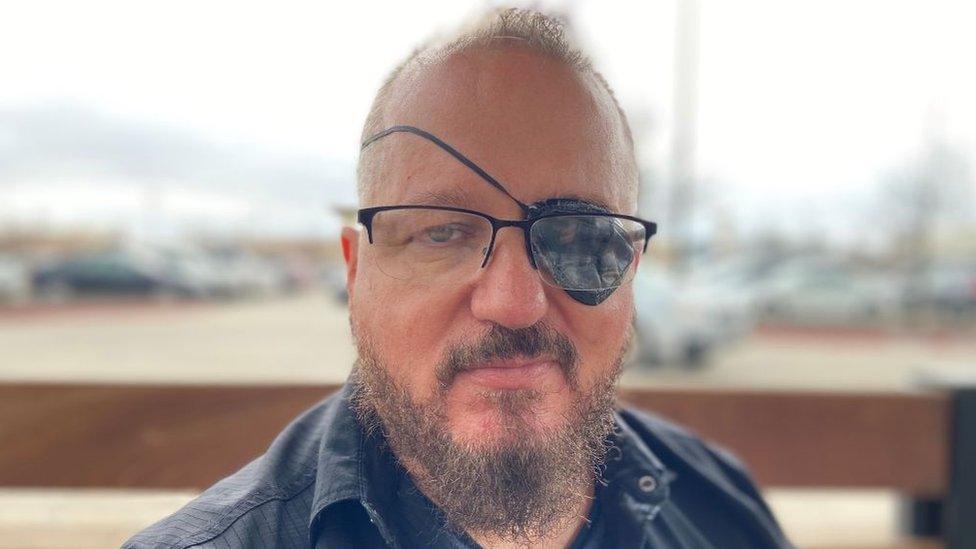Proud Boys face conspiracy trial for Capitol riot
- Published
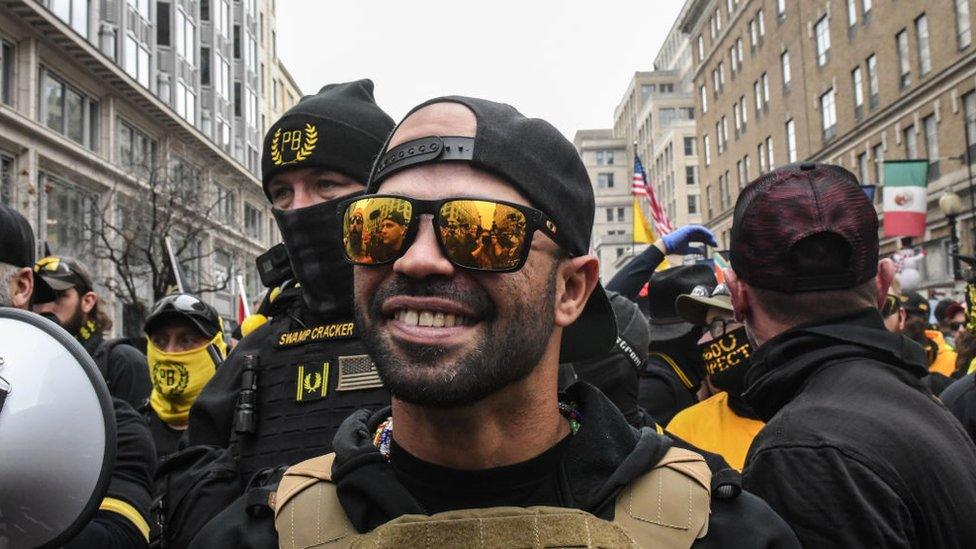
Henry 'Enrique' Tarrio, the former national leader of the Proud Boys
Five members of the far-right Proud Boys group went on trial on Thursday charged with seditious conspiracy in the latest case involving alleged ringleaders of the 6 January 2021 Capitol riot.
The defendants include Proud Boys national leader at the time, Henry "Enrique" Tarrio.
In addition to seditious conspiracy, the five have been charged with eight other crimes including obstructing law enforcement and destruction of government property.
If convicted, the Proud Boys will be looking at significant time in prison. The seditious conspiracy charge alone carries a sentence of up to 20 years.
Who is on trial and why?
Alongside Mr Tarrio, who was at the violent Unite the Right rally in Charlottesville, Virginia, in 2017 and became the group's leader the following year, the Proud Boys on trial are:
Ethan Nordean, 31, of Washington state, who goes by the alias "Rufio Panman". Mr Nordean was active in street protests and brawls with anti-fascist activists in the Pacific Northwest. In video from 6 January, he's seen leading members of the group around the Capitol
Joe Biggs, 38, of Florida. Mr Biggs is a US Army veteran and former broadcaster for Alex Jones's Infowars. He was pictured next to Mr Nordean throughout the riot
Zachary Rehl, 37, a former US Marine and the leader of the Philadelphia branch of the Proud Boys
Dominic Pezzola, 44, of Rochester in New York state. Prosecutors say Mr Pezzola, also a former US Marine, was one of the first people to reach one of the entrances to the Capitol, where he took a riot shield off a police officer and smashed a window
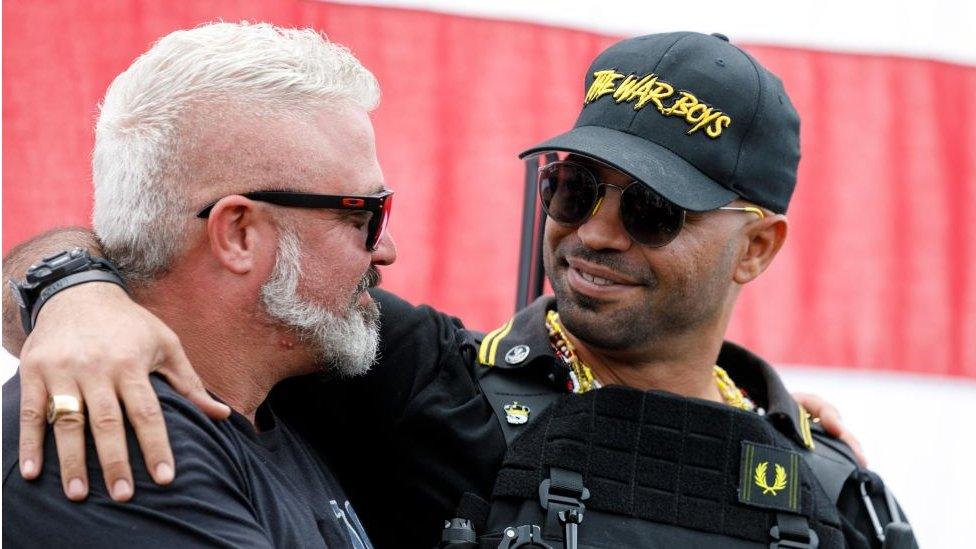
Joe Biggs (l) and Enrique Tarrio at a rally in Portland in September 2020
Prosecutors say Proud Boys repeatedly posted a number of violent threats online. For instance, in November 2020, Mr Tarrio wrote on a post by Joe Biden: "YOU need to remember the American people are at war with YOU. No Trump…No peace. No quarter."
Others posted about civil war, firing squads and "traitors".
In late December 2020, the Proud Boys leaders created a new chapter which they referred to as the "Ministry of Self Defense". Government prosecutors say the group then began planning for violence in earnest.
Proud Boys gathered near the Washington Monument on the morning of the riot before making their way to the Capitol. More than 100 members of the group were present that day, and dozens have subsequently been arrested.
Lawyers for the defendants are expected to argue that the group was poorly organised and that there was no preconceived plan to storm the building. They've also noted in a pre-trial motion that Mr Tarrio was in touch with police before 6 January and informed law enforcement of the group's plans for the day.
Jury selection for the trial began before Christmas but was relatively slow as many potential jurors expressed negative views of the group.
Opening statements, which began on Thursday, were also delayed by a number of pre-trial arguments and the disqualification last week of Mr Biggs's lawyer, Norm Pattis.
Mr Pattis also defended conspiracy theorist and radio host Alex Jones against defamation charges brought by relatives of the victims of the Sandy Hook school shooting. During that case, Mr Pattis improperly shared information about the relatives with other lawyers, prompting a judge in Connecticut to disbar him - disqualifying him from acting as a lawyer - for six months.
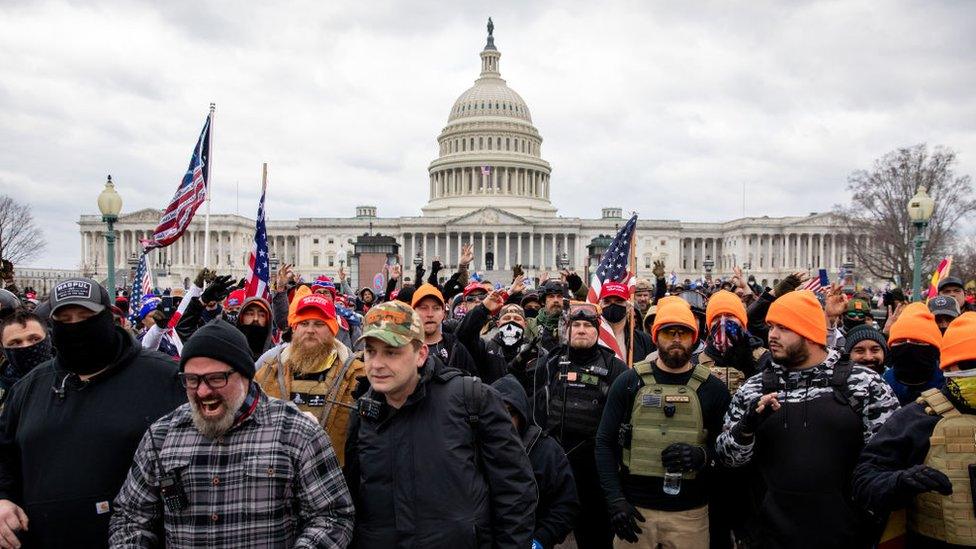
Proud Boys, many wearing orange hats, along with other rioters outside the US Capitol on 6 January 2021
Who are Proud Boys?
The Proud Boys were founded in New York City in 2016 by Gavin McInnes, a co-founder of Vice who left the media company to embark on a career as a right-wing commentator and podcaster.
They describe themselves as an all-male drinking club with bizarre initiation rituals, or a "pro-Western fraternal organisation".
But they are better known for their frequent brawls with left-wing anti-fascist activists in cities across the US.
In a 2019 BBC documentary, external, Proud Boys in Portland, Oregon, boasted about arrests and street fighting.
They later came to widespread fame after a presidential debate in September 2020. During a discussion about extremism, Joe Biden mentioned the organisation. Donald Trump responded by saying: "Proud Boys, stand back and stand by."
Judge Timothy Kelly ruled this week that prosecutors can use video of the debate as evidence.
While the Proud Boys have a number of non-white members and Mr Tarrio himself has Afro-Cuban heritage, they are designated a hate group by the Southern Poverty Law Center, which notes that their "actions belie their disavowals of bigotry" and that members "regularly spout white nationalist memes and maintain affiliations with known extremists".
How is this trial different from the Oath Keepers case?
In November last year the leader of the Oath Keepers militia, Stewart Rhodes, and head of the group's Florida chapter, Kelly Meggs, were convicted of seditious conspiracy - the most serious charges levelled against the more than 900 people who have been arrested in connection with the Capitol attack.
Unlike his co-defendants, Mr Tarrio was not in Washington during the riot. He faced charges after burning a Black Lives Matter banner that was stolen from a Washington church and was also charged with violating weapons laws.
He was arrested on 4 January 2021, and when he was bailed he was ordered by the judge to leave Washington and ended up watching events from a hotel room in nearby Baltimore.
Although both Oath Keepers and Proud Boys were staunch supporters of Donald Trump, documents released by a congressional committee investigating the riot showed a sharp rift between the two groups over allegations of racism.
Oath Keepers agreed to provide security for an event organised by Proud Boys in Portland - one of the hotbeds of the group's activities - in 2019. But Rhodes pulled his group out of the event when he found out about an invited speaker who allegedly held white nationalist views.
Mr Tarrio was angry at the move, and he told congressional investigators: "I didn't like Stewart Rhodes. I still don't like Stewart Rhodes."
While the Oath Keepers have mostly stopped functioning since the Capitol riot, Proud Boys have continued to remain active, including holding protests at drag shows and supporting anti-abortion activists.
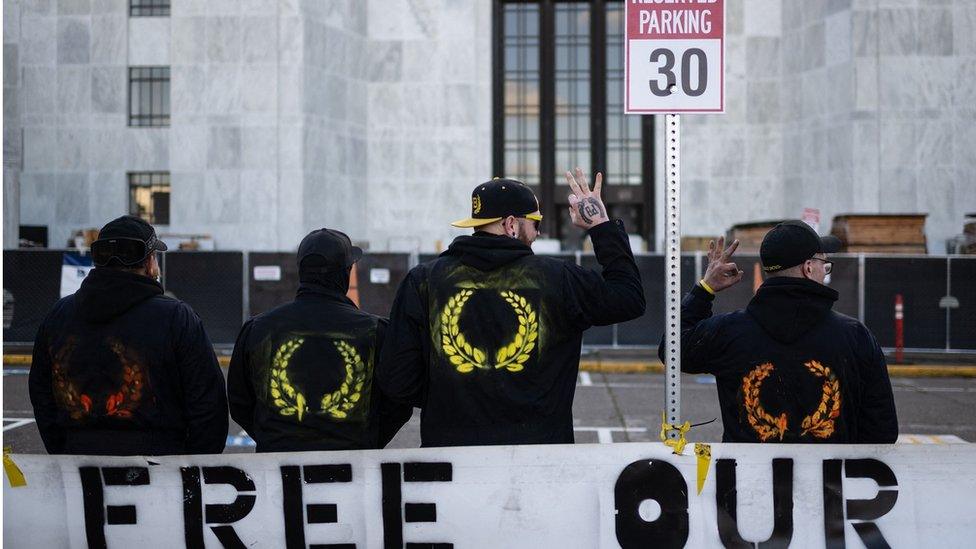
Proud Boys have continued to hold events and protests since January 2021
What is seditious conspiracy?
Under US law, seditious conspiracy is defined as a plot to overthrow the government or use force "to prevent, hinder, or delay the execution of any law of the United States".
It is a rarely used law that dates from the Civil War, and the Oath Keepers case was the first successful prosecution for seditious conspiracy since 1995. Three other members of that militia were acquitted of the charge during last year's trial.
Seditious conspiracy is less serious than treason, which is the only crime specifically spelled out in the US Constitution and requires a high standard of proof - the testimony of at least two witnesses in open court or a confession. Treason can also be punishable by the death penalty.
Two Proud Boys, Charles Donohoe and Jeremy Bertino, have already pleaded guilty to seditious conspiracy and may be called as witnesses at the trial.
Voluminous evidence in the form of messages, videos and social media posts, along with a long list of potential witnesses, means that the trial is likely to last at least six weeks.
Related topics
- Published29 November 2022
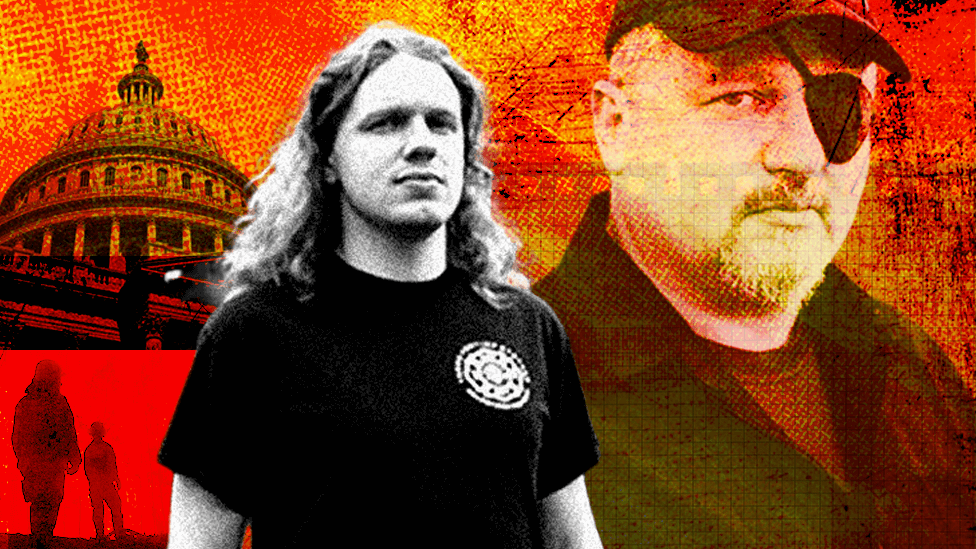
- Published28 January 2021

- Published30 September 2020
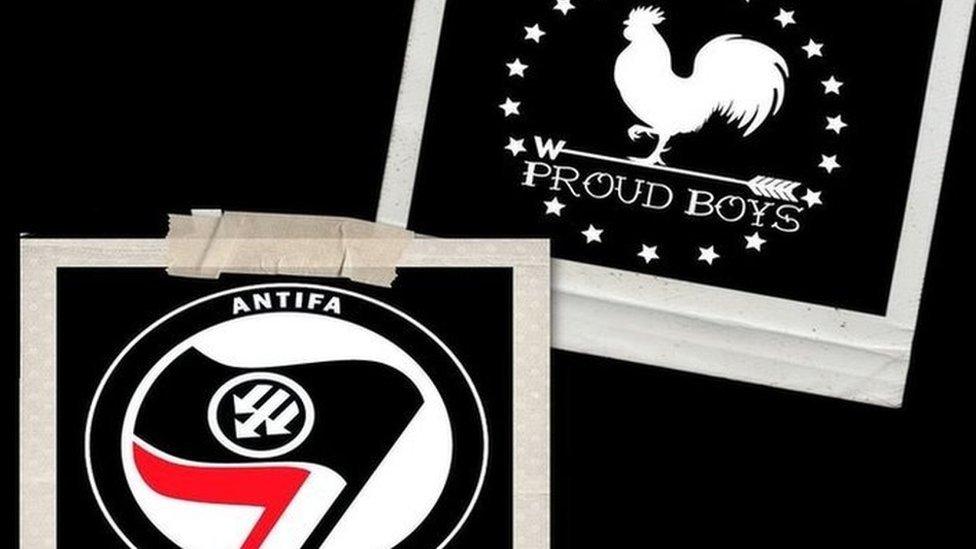
- Published27 September 2022
